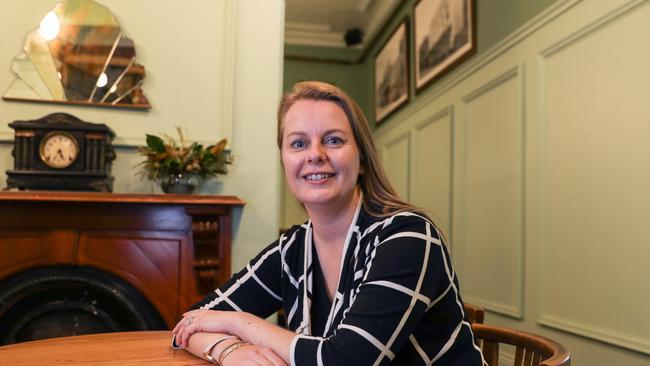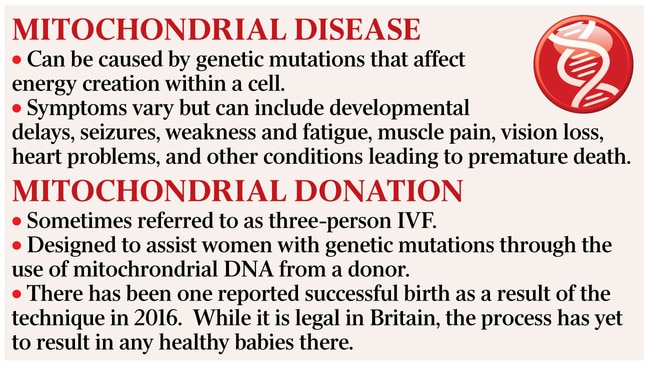Senators give push for ‘three-person IVF’
A Senate committee last night recommended Australia consider allowing ‘three-person IVF’.

Women with a rare genetic disease have a glimmer of hope that they might be allowed to leave a healthy legacy for their family, after a Senate committee last night recommended Australia consider allowing “three-person IVF”.
Advances in science and technology mean it is now possible for genetic material to be donated to couples where the woman has mitochondrial disease, which may otherwise be passed on to their children.
Mitochondrial disease is rare. Only one in 5000 people are thought to develop its most serious symptoms, which vary greatly given the disease attacks the ability of the cells to generate energy. It can lead to an array of other conditions and premature death.
While mitochondrial donation is theoretically allowed as part of IVF in Britain, the system has yet to lead to any successful births, although at least one healthy baby has been born elsewhere as a result of the technique.

In Australia, it remains illegal, prompting a Senate committee inquiry to consider the medical and ethical considerations, including the safety of the technique, the moral status of the resulting embryo, and issues around the rights of the child and genetic contributors.
In a report tabled in parliament last night, the committee noted the “strong potential” for mitochondrial donation to address the potential effects of the disease and recommended a public consultation process to decide whether it be allowed in Australia.
Mitochondrial disease runs throughout Mia Bell’s extended family and she was diagnosed with mitochondrial myopathy in 2003 before deciding to have children herself.
Ms Bell, who helps run a support group for the Australian Mitochondrial Disease Foundation and gave evidence to the committee, said she and others in the “mito community” were pleased the inquiry had put the issue on the agenda and would keep lobbying for change.
“When people see the devastating impact on children and families who have this disease — no cure, very few treatments, and no way of preventing it from passing on to their children — I feel they will want to give them some hope,” Ms Bell said.
She said having the option not to pass mitochondrial disease on to the next generation “really is the most groundbreaking and amazing potential” and should be embraced.
The committee has recommended Health Minister Greg Hunt take advice from the National Health and Medical Research Council on the timing and format of a consultation process, and that the government put forward options for legislative change.
AMDF chairman Doug Lingard thanked the committee for its inquiry and called on the government to revise the legislation as soon as possible.


